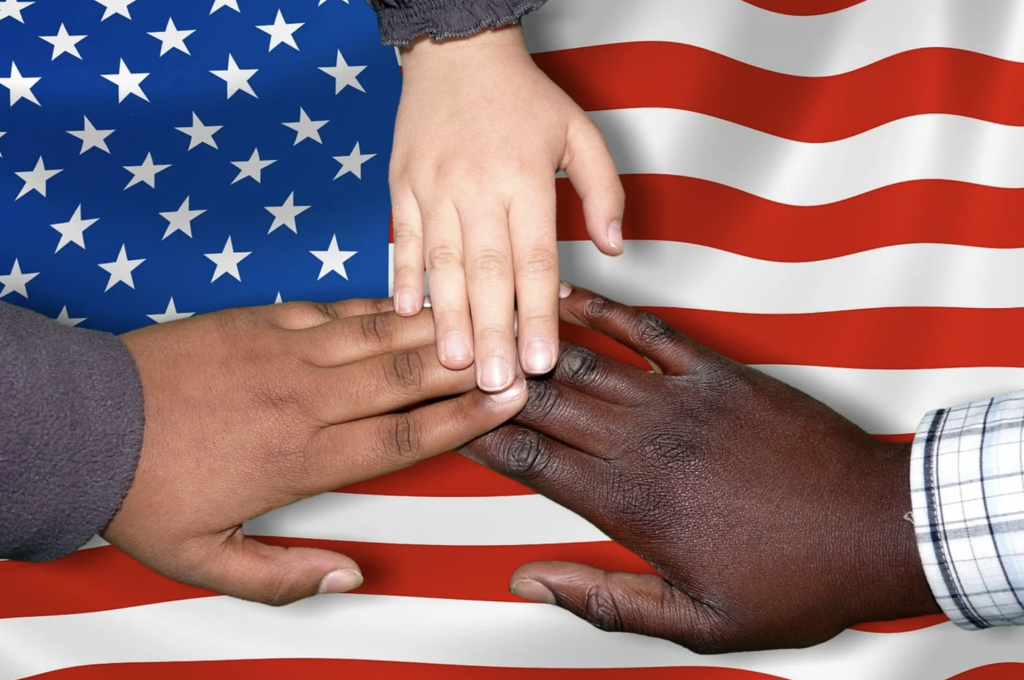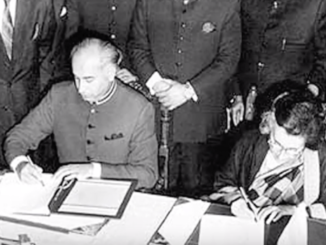
Past few days witnessed a diversion from maintained tradition and flurry of events beginning with US President Joe Biden’s breakthrough announcement on Armenian Remembrance Day. It must be recognized as breakthrough as it was a departure from US’ historically maintained position on Armenian mass killings of 1915-1916, under the rule of Ottoman Caliphate. The commemoration was on the occasion of 106th anniversary of atrocities inflicted on Armenians, observed every year on 24th April, the day Armenians mark as the beginning of what they regard as genocide.
In doing so, US has joined a coterie of thirty or so countries and most historians who conclude that the massacres and deportations of Armenian beginning in 1915 amounted to genocide. However, it was in offing a long ago, as both houses of US Congress passed resolutions in 2019 calling these killings a genocide, but the Biden’s predecessor Donald Trump stopped short of attributing formal recognition of genocide, primarily in view of Turkish opposition.
The mass killings of Armenians occurred on the backdrop of waning strength of once mighty Ottoman Empire. Ottomans were fighting alongside Axis Powers in the World War One, and suffered crushing defeats and setbacks. Armenians made up the second largest minority in the Ottoman after Greeks and were registered in the Ottoman army. As the Armenians were a Christian minority, they mainly looked after Russian Empire to shield their interests. The humiliating defeats of Ottomans in the Caucasus confirmed the Ottomans that Armenians were in collusion with Russia. Turkish propaganda at the time presented the Armenians as saboteurs and a pro-Russian “fifth column”. Young Turks – an officers’ movement that had seized power in 1908 in Ottoman Empire and displaced Sultan – launched a series of measures against Armenians. While this minority lived on the fringes of crumbling empire in the Eastern Anatolia, they were forced to relocate to Syrian Desert. Armenians in the Ottoman army were disarmed and killed. Their scholars, writers and intellectuals were executed; hundreds of thousands other perished due to starvation and disease en route to Syrian Desert.
The exact number who were murdered and died remains still disputed. Turkey claims that they numbered around 300,000 whereas Armenians assert it to be 1.5 million. According to International Association of Genocide Scholars (IAGS), the death toll was more than a million.
This begs an elucidation of the term ‘genocide’ and how it is determined as per the rules laid by International Law. Article 2 of the UN Convention on Genocide of December 1948 describes genocide as carrying out acts intended “to destroy, in whole or in part, a national, ethnic, racial or religious group”. It is reaffirmed by the UN Convention on the Prevention and Punishment of Genocide which went into effect on January 12, 1951.
The dispute about whether it was genocide revolves around the question of premeditation – the degree to which the killings were orchestrated. Here the aisle gets divided, as many historians, governments and the Armenian people believe that they were premeditated but a number of scholars question this. Fareed Zakaria in his show on CNN enquired Philippe Sands, an international lawyer and Law Professor in University College London about the significance of this recognition in which Sands alluded to the inapplicability of the term genocide which originated in 1943 by Raphael Lemkin, the Polish-Jewish lawyer to an event that pre-dated it. In Sands projections, it must be viewed as a political move. In reaffirming Ankara’s historic position, Ibrahim Kalin, the Turkish Presidential spokesman referenced the absence of International Court’s ruling on the matter in line with Srebrenica and Rwanda Tribunals for Genocide which are the sole bodies to determine and impart the notion of genocide.
Notwithstanding, the issue remains highly sensitive. Biden’s statement “we remember the lives of all those who died in the Ottoman-era Armenian genocide and recommit ourselves to preventing such and atrocity from ever again occurring” is a massive victory for Armenians and its extensive diaspora. It provides an air of legitimacy to Armenian’s historical claims who remain the most dispersed nation in the world and faced fresh conflicts with their Eastern neighbor Azerbaijan over the disputed Nagorno Karabakh region. Turkey stood with Azerbaijan and assisted the latter with arms, supplies and manpower.
President Biden also made the point that his statement was “not to cast blame but to ensure that what happened is never repeated”. Recognition of Armenian genocide was a campaign promise of Biden who has vowed to bring back democracy and human rights in foreign policy agenda. Turkey, however, challenged the ‘scholarly and legal’ basis of announcement and asked to “reverse this wrong step immediately”, which Turkey sees as yielding to political pressure from radical Armenian circles and anti-Turkey groups.
On the other side, the recognition has occurred on the backdrop of abysmally sunken US-Turkey relationship. The two NATO allies are at loggerheads over a host of issues. President Erdogan’s chequered record on Human rights, Turkey’s go ahead with Russian S-400 missile defence system that were designed to shoot down NATO jets, US federal indictment of a Turkish state bank for allegedly helping Iran dodge sanctions and Turkish new outreach to conflicts in the Middle East have angered Western allies. It led to dropping of Turkey from the US F-35 fighter jet training program. Similarly, Washington’s refusal to pay heed to Turkish calls for extradition of US based Turkish Islamic preacher Fethullah Gulen – mastermind of failed 2016 coup – has swinged the moods of Turkey’s President.
Ankara has always bristled over the Armenian issue and traditionally subsequent administrations in Washington have calibrated careful policy not to toe the line for geopolitical reasons. Turkey is a vital partner as it is the second biggest military power in the NATO alliance and share a defence pact with US that allow US military access to Turkish bases. The announcement and its impact remains largely symbolic and a source of embarrassment for Turkey. It can further halt the rapproachment and reconciliation efforts between Turkey and Armenia, as signaled by new mood in Turkey. The move also indicates that in the future the probability of new alignments remain stronger as Turkey moves further away from US to new camps spearheaded by Russia and possibly China. It may further widen the crack between NATO members and can serve to entrench the existing fault lines. The setback to US-Turkey relationship might be grave and would require stronger resuscitation efforts.
![]()




Be the first to comment